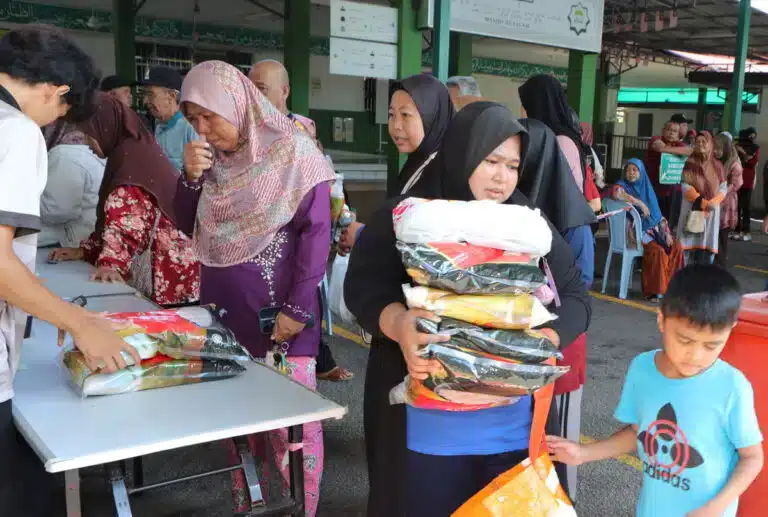KUALA LUMPUR, Sept 18 — The country’s rice supply is sufficient to cover domestic needs for another four to five months, and there is no urgent need to use the stockpile, said Agriculture and Food Security Minister Datuk Seri Mohamad Sabu.
Malaysia now has a stockpile of 900,000 metric tonnes of rice, consisting of 250,000 metric tonnes of government stockpiles and 650,000 metric tonnes of commercial stock.
“As such, the ministry is of the view that there is still no urgent need to use the stockpile (buffer stock) amounting to 250,000 metric tonnes.
“The existing commercial stock of 650,000 metric tonnes is sufficient to cover domestic needs,” he said when winding up the debate on the motion for the 12th Malaysia Plan Mid-Term Review in the Dewan Rakyat today.
Commenting on the increase in the price of rice, Mohamad said the increase only involved imported white rice (BPI), while the price of local white rice remained at RM2.60 per kilogramme.
“Beginning 2023, Bernas not only has to absorb the rising cost but also supply rice of 38 per cent more than usual. However, Bernas continues to commit to importing rice to meet supply.
“The BPI price adjustment of up to 36 per cent, that is from RM2,350 to RM3,200 per metric ton from September 1, 2023, was implemented by Bernas to reduce the increasing losses in covering the cost of purchase and import,” he added.
The shortage of rice supply in the domestic market is expected to be restored within one month.
The ministry is also actively implementing initiatives to increase the country’s rice production to reach the target of 80 per cent in Self-Sufficiency Rate (SSR) by 2030.
The initiatives being carried out included implementing the Large-Scale SMART Padi Field (Smart SBB) programme, which has been expanded by targeting 150,000 hectares of paddy fields with an average yield of seven tonnes per hectare.
The ministry, following an engagement session with the traders association on September 15, has agreed to offer wholesale licences to members involved in the food business.
“Through this wholesale license, food entrepreneurs can enjoy BPI’s purchase price at a fixed wholesale price of RM 160/50kg,” Mohamad said.
On the Indian government’s ban on exporting non-basmati white rice, the ministry hopes to meet with the Indian Minister of Agriculture and Farmers’ Welfare to discuss the matter.
“Bernas is also negotiating with other rice-producing countries such as Vietnam, Thailand, and Cambodia,” he said.
Various intervention measures were taken to overcome the issue of local white rice shortage, including detecting illegal activities such as hoarding.
— Bernama





